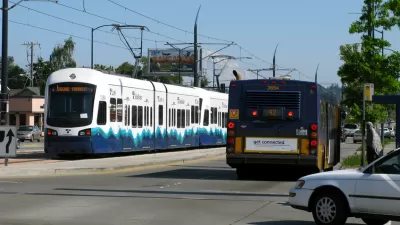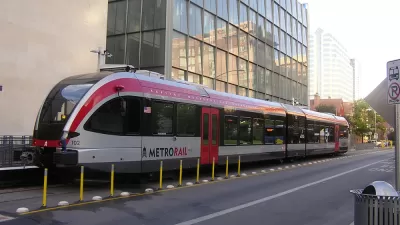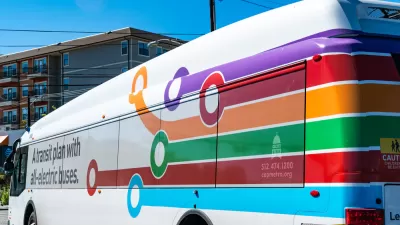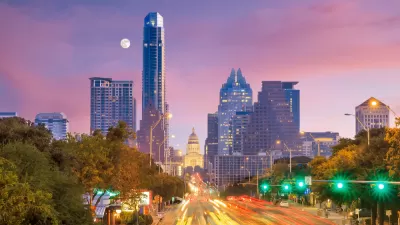Even with the fiscal uncertainty of the pandemic, voters around the country overwhelmingly supported new funding for public transit projects.

Given the number of U.S. jurisdictions where voters approved new public transit funding programs in the November election, it might seem like government's have a mandate to support transit through the trying economic and social uncertainties of the pandemic.
An article by TransitCenter surveys the election results for lessons to be inferred by the messages sent by voters in November.
First up: the few measures that didn't pass were "designed to appeal to people who don’t ride transit," according to the article. "The strategy of diluting transit investment to get more votes may have worked in the past, but the winning formula this cycle was different."
"In Austin, San Antonio, Seattle, and other cities, voters not only supported transit — they supported smart, rider-focused transit investment. These winning initiatives will benefit entire transit networks by investing in frequent service on several routes. And in Austin, high-capacity expansion projects will be built where such large-scale investment is justified — within walking distance of where lots of people live and work."
The big wins in those three cities are contrasted with the success of ballot initiatives from recent history in Denver and Los Angeles, for example, which tended to focus on large capital investment programs to expand the transit system to various corners of the region.
In addition to dissecting the success of the San Antonio, Austin, and Seattle transit votes, the article also digs into the notable failure for public transit in November: the "Get Moving" plan in Portland.
FULL STORY: Good Transit Policy Was Good Politics This Election Day

Planetizen Federal Action Tracker
A weekly monitor of how Trump’s orders and actions are impacting planners and planning in America.

Map: Where Senate Republicans Want to Sell Your Public Lands
For public land advocates, the Senate Republicans’ proposal to sell millions of acres of public land in the West is “the biggest fight of their careers.”

Restaurant Patios Were a Pandemic Win — Why Were They so Hard to Keep?
Social distancing requirements and changes in travel patterns prompted cities to pilot new uses for street and sidewalk space. Then it got complicated.

Albuquerque Route 66 Motels Become Affordable Housing
A $4 million city fund is incentivizing developers to breathe new life into derelict midcentury motels.

DC Area County Eliminates Bus Fares
Montgomery County joins a growing trend of making transit free.

Platform Pilsner: Vancouver Transit Agency Releases... a Beer?
TransLink will receive a portion of every sale of the four-pack.
Urban Design for Planners 1: Software Tools
This six-course series explores essential urban design concepts using open source software and equips planners with the tools they need to participate fully in the urban design process.
Planning for Universal Design
Learn the tools for implementing Universal Design in planning regulations.
Heyer Gruel & Associates PA
JM Goldson LLC
Custer County Colorado
City of Camden Redevelopment Agency
City of Astoria
Transportation Research & Education Center (TREC) at Portland State University
Camden Redevelopment Agency
City of Claremont
Municipality of Princeton (NJ)





























